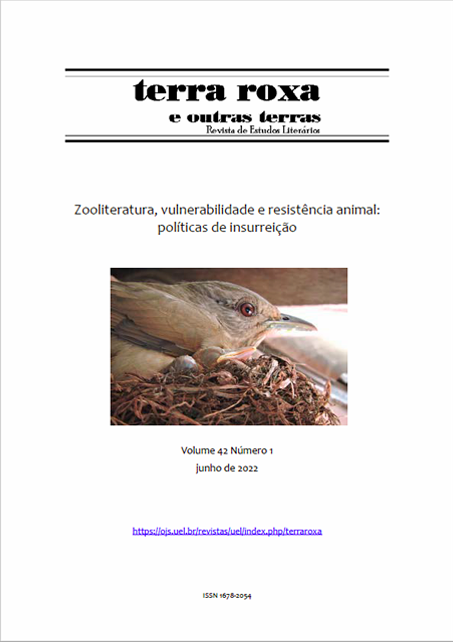
Vol. 42 Núm. 1 (2022): Zooliteratura, vulnerabilidad y resistencia animal, políticas de insurrección

Los artículos de este número discuten la vulnerabilidad ontológica y enfatizan la patogenia de las relaciones entre animales humanos y otros animales vivos, al tiempo que señalan formas de resistencia contra la violación de los cuerpos. La vulnerabilidad patógena, es decir, la que nace de las relaciones de opresión y explotación, se revela en los cuerpos torturados, sometidos y asesinados, como se ve en la poesía de Drummond (Guida e Melo) y en la lectura de la novela de Ana Paula Maia (Barros). Este último texto abre espacio para una reflexión sobre las luchas anticapitalistas y antiespecistas y dialoga, por tanto, con el análisis de O sofá estampado (Bortoletto y Libanori), en el que la opresión figura en la pobreza social y la miseria de la vida para más allá. el humano. La intersección entre diferentes formas de violencia también aparece en el análisis de Conduce tu arado sobre los huesos de los muertos (Rodrigues y González) y Contos Gauchescos (Copstein), que refuerzan la relación entre modos de opresión como el especismo, el capacitismo y el sexismo. Finalmente, el cuestionamiento del sujeto en los textos de Arce, Alkmin, Gonçalves, Melo, Costa y Guimarães revisa el lugar de la animalidad y posibilita una comprensión de la vulnerabilidad ontológica como aquella que propicia el encuentro entre cuerpos marcados por la fuerza de la insurrección.













